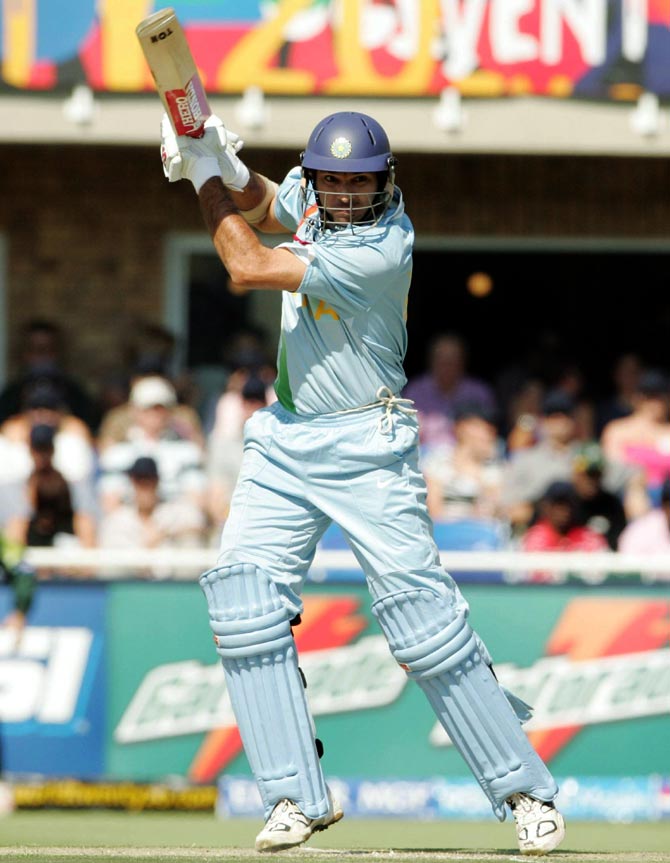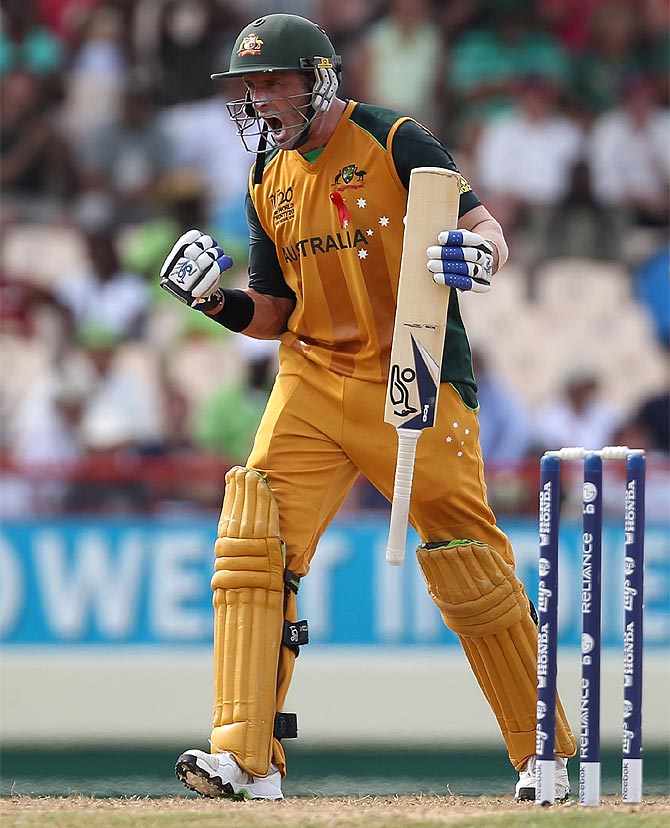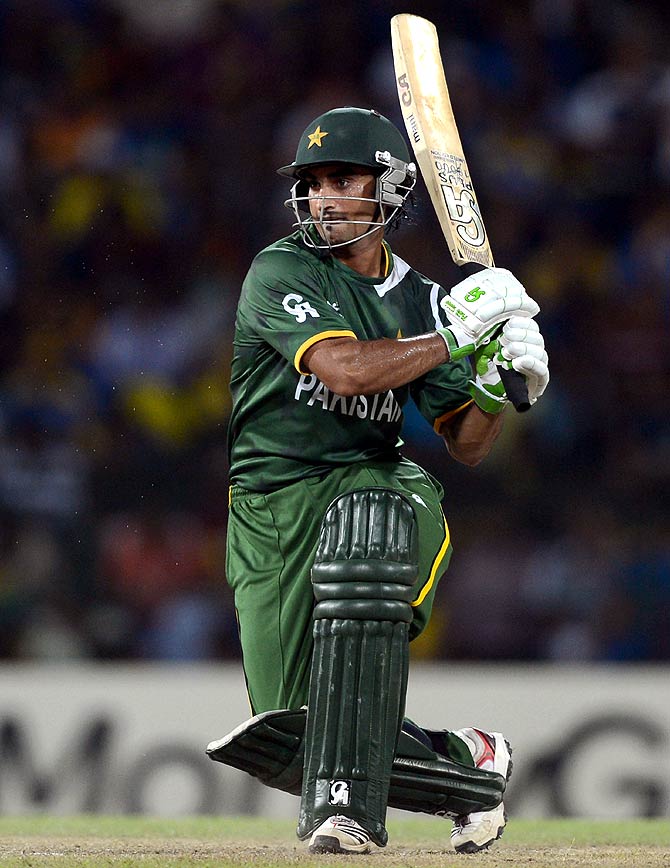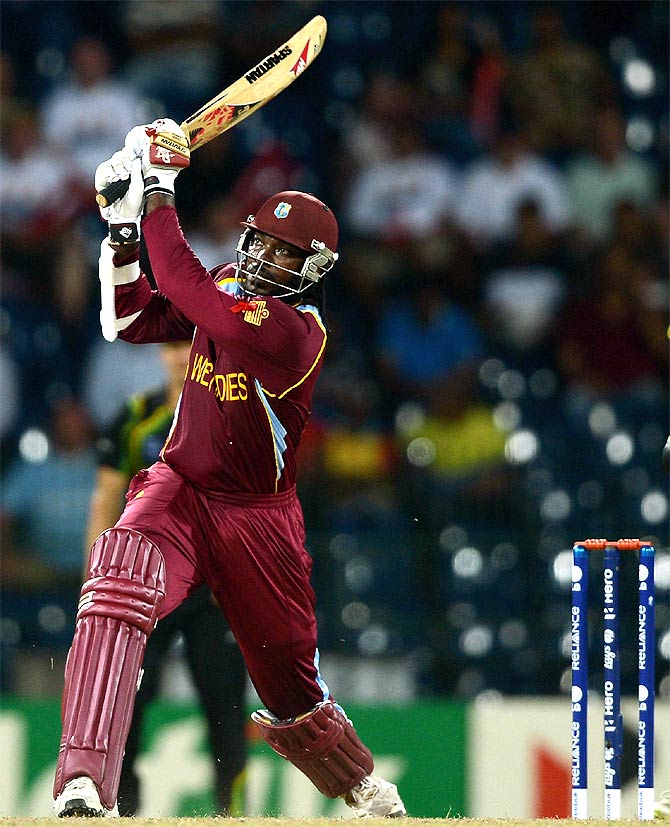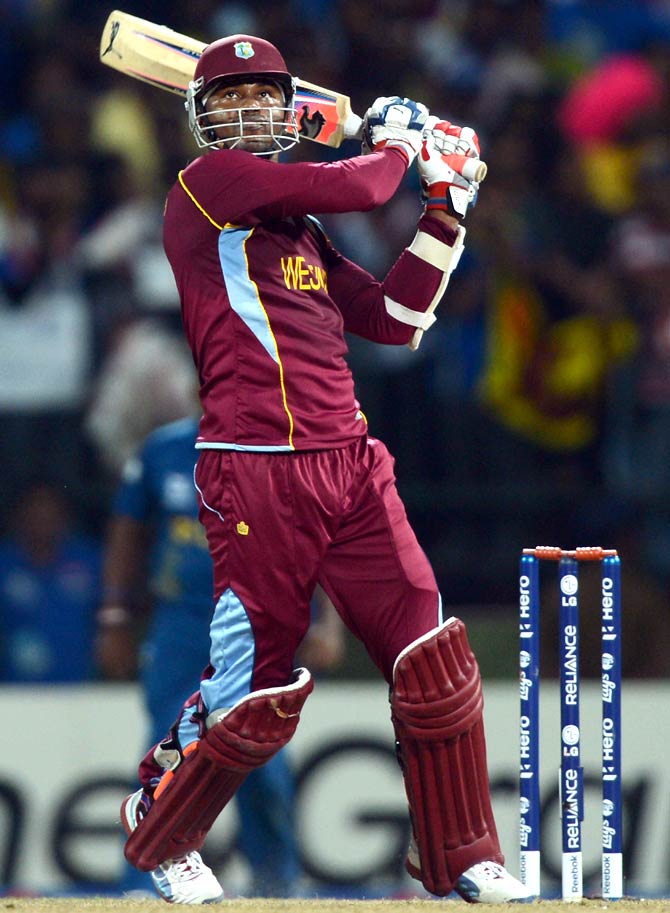 | « Back to article | Print this article |
Yuvraj wrote his name in the history books
Five batsmen who left their mark in previous editions of the ICC World Twenty20
Twenty20 cricket is all about being instantaneous.
It is quick runs that matter. Even as technique takes a back seat, it is flamboyance that comes to the fore.
The World T20 is arguably the biggest stage to showcase that flamboyance.
Ahead of the big ticket fixtures that get underway this week in the fifth edition of the tournament, rediff.com takes a look at the most belligerent knocks in previous edition of the competition.
Yuvraj Singh
(58 off 16 balls vs England in 2007, strike rate: 362.50)
Yes, he is very much a part of the Indian squad this time.
But even if he wasn’t, Yuvraj Singh had done enough to etch his name in cricket history books.
The first, and certainly the best, of his knocks came in the inaugural edition, in the match against England at Kingsmead, Durban.
Yuvraj smashed 70 off just 30 balls to help India to a resounding 218 for four.
During the course of his innings, he also became only the fourth batsman ever – first in T20 cricket – to slam six sixes in an over, Stuart Broad being the unfortunate bowler.
He also completed his half century off just 12 balls.
Despite a valiant fight back – England scored 200 for six in reply – Yuvraj’s effort proved too good.
In the same tournament, Yuvraj played a starring role in leading India to the title.
His 30-ball 70 against Australia in the semi-finals (strike rate: 233.30) was another spectacular effort.
It was an uncharacteristic innings by Hussey
Michael Hussey
(60 not out off 24 balls vs Pakistan in 2010, strike rate: 250)
It was an uncharacteristic innings by Michael Hussey, but spectacular netheless!
More importantly, it helped Australia snatch victory from the jaws of defeat.
When Hussey came out to bat on that day, in what was the second semi-final, his team was tottering at 105 for five (in the 13th over), in response to Pakistan’s formidable total (191 for six).
He immediately took centre stage, regaling the crowd at the Beausejour Stadium in Gros Islet (St Lucia) with three hits to the fence and six over it.
His herculean effort ensured Australia a place in the final, where they eventually lost to England.
Nazir was Pakistan's unlikely hero
Imran Nazir
(72 off 36 balls vs Bangladesh in 2012, strike rate: 200)
It was a must-win match for Pakistan.
With New Zealand already qualified for the Super Eights, the onus was on Pakistan to ensure the same.
And Shakib Al Hasan made it all the more difficult for them, his 54-ball 84 helping Bangladesh to a healthy 175 for six, their highest total in the format.
Then the Pallekele international cricket stadium witnessed an unlikely hero.
Imran Nazir played sans any pressure, hitting nine boundaries and three sixes, to turn the game on its head.
No points for guessing… he was named the player of the match.
Gayle has quite a few big knocks in the tournament
Chris Gayle
(75 not out off 41 balls vs Australia in 2012, strike rate: 182.92)
How can any description of T20 cricket be complete without mentioning the most destructive batsman of all times?
Chris Gayle has quite a few big knocks in the tournament, like the 117 against South Africa at Wanderers in 2007, or the 88 against Australia at the Oval in the 2009.
But the best of the lot came against Australia in the semi-finals of the last edition.
Gayle single-handedly took the game away from Australia, his belligerent innings helping the West Indies to a formidable 205 for four.
A place in the final was guaranteed.
Samuels's effort came in the worst of circumstances
Marlon Samuels
(78 off 56 balls vs Sri Lanka in 2012, strike rate: 139.28)
Gayle, the hero of the West Indies' semi-final win over Australia, failed in the final – taking up 16 balls to score just three runs.
However, the Caribbean nation had another hero, an unlikely one at that.
Marlon Samuels's effort came in the worst of circumstances.
With the West Indies' wickets falling left, right and centre it was left to Samuels to play the sheet-anchor's role first, as per the demands of the situation.
And when the situation arose, he took centre stage.
Samuels targeted Sri Lanka's strike bowler Lasith Malinga, for the assault.
With the West Indies reeling at 48 for two, after the 12th over, Malinga was handed the ball. Samuels smashed three sixes as 21 runs came off the over.
Again, with the team precariously placed at 89 for five, Malinga charged in to bowl the 17th over, his third of the innings. Little did he, and the Sri Lankans, know that the over would change the course of the match.
19 runs came off it, all but one from Samuels’s bat.
The West Indies won the match by 36 runs -- the two Malinga overs clearly being the difference -- to annex their first World crown since 1979.
